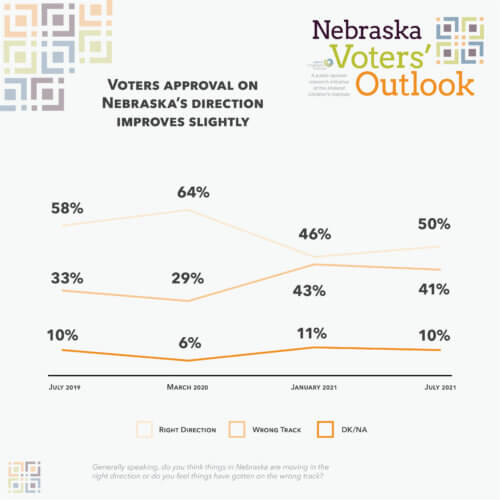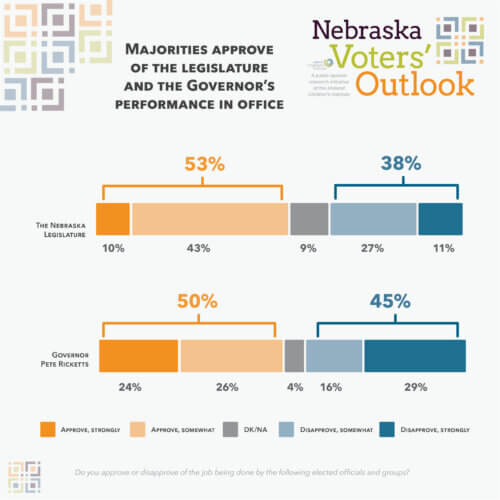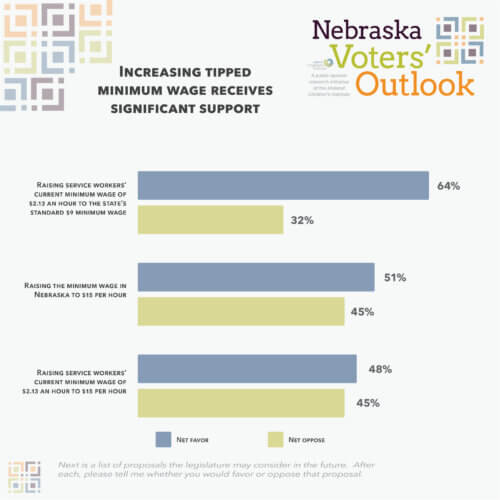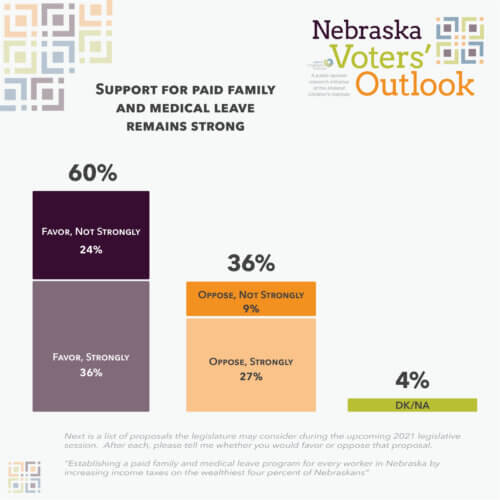Nebraska Voters’ Outlook is commissioned by the Institute and conducted in partnership with Patinkin Research Strategies, LLC July 26 – July 30, 2021 among 592 registered voters across the state. Full results are available here. View the research memo here. Press release available here.
These results come just six months after a January 2021 Nebraska Voters’ Outlook survey spotlighted large shifts to majority disapproval for state government, leaders, and policy amid the ongoing COVID-19 pandemic and rise of the delta variant.
“Approval ratings remain comparatively low at this point. Perhaps, it’s because Nebraskans aren’t getting the social and economic policies they want. And what state lawmakers have offered them instead may not be working,” explained Hadley Richters – Holland Children’s Institute CEO.
Results also reflect negative assessments of state performance on policy issues important to Nebraska children and families. National trends, including increased access to paid leave and spikes in child care costs show up here in state policy perception. Majorities continue to believe state government is failing to deliver on paid leave (56% negative); reasonable wages (58% negative); child care affordability (58% negative); and affordable college tuition (59% negative). Providing high quality public education evenly splits surveyed Nebraskans at 48% positive versus negative.
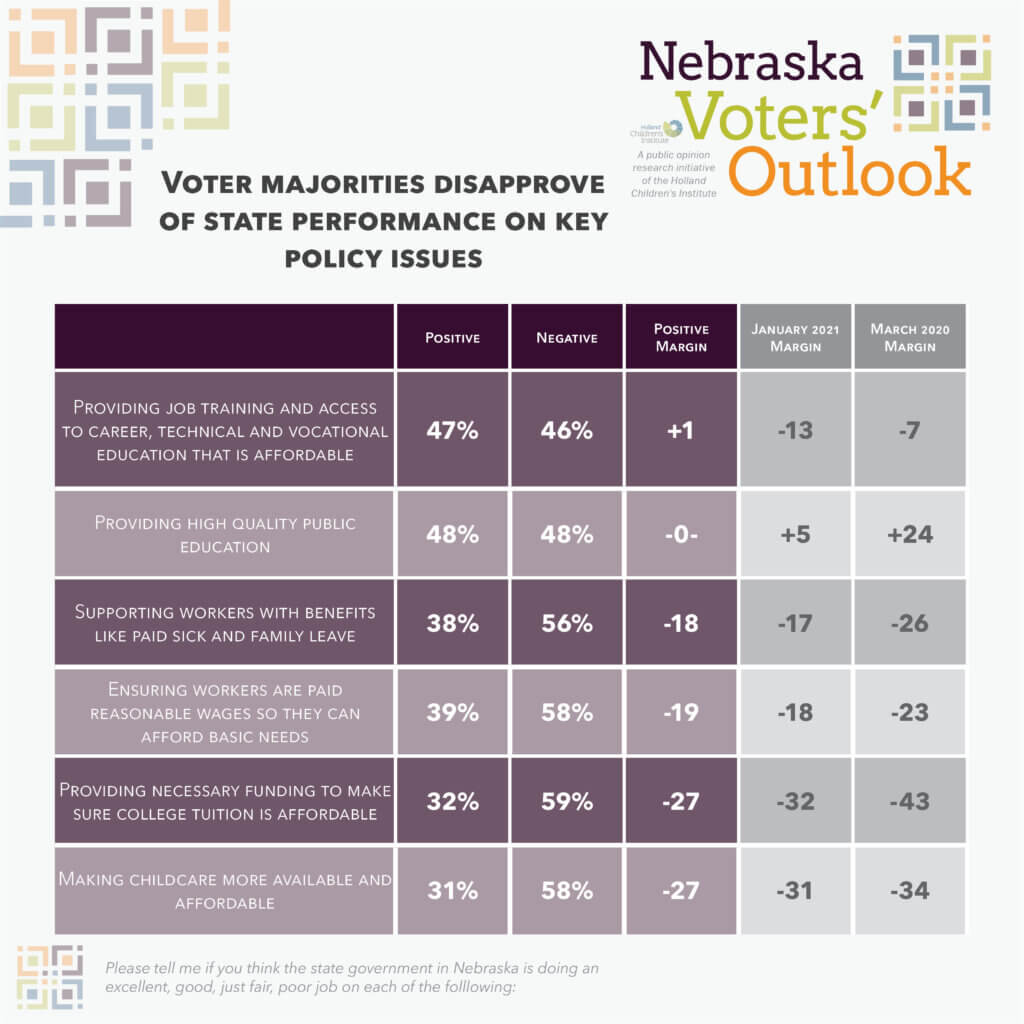
An impressive 14-point turnaround is reflected in perception of state performance on job training and access to career, technical and vocational education, from 53% disapprove (Jan 2021) to 47% approve (Jul 2021). Legislative and Executive branches, school districts, nonprofits, and industry have given increasing attention to the topic as skilled labor and essential sector vacancies have dogged Nebraska’s economic development efforts. “When stakeholders work together to find objectively good solutions to pressing issues like the need for pathways from ‘cradle to career’ for Nebraska’s skilled trades, voters take notice,” said Richters.
While Nebraskans favor policies which benefit themselves and their families, significant majorities also believe “unemployment assistance” (49% vs. 22%); “healthcare,” (64% vs. 8%); and “food assistance” (49% vs. 22%) are ‘extremely’ or ‘very important.’
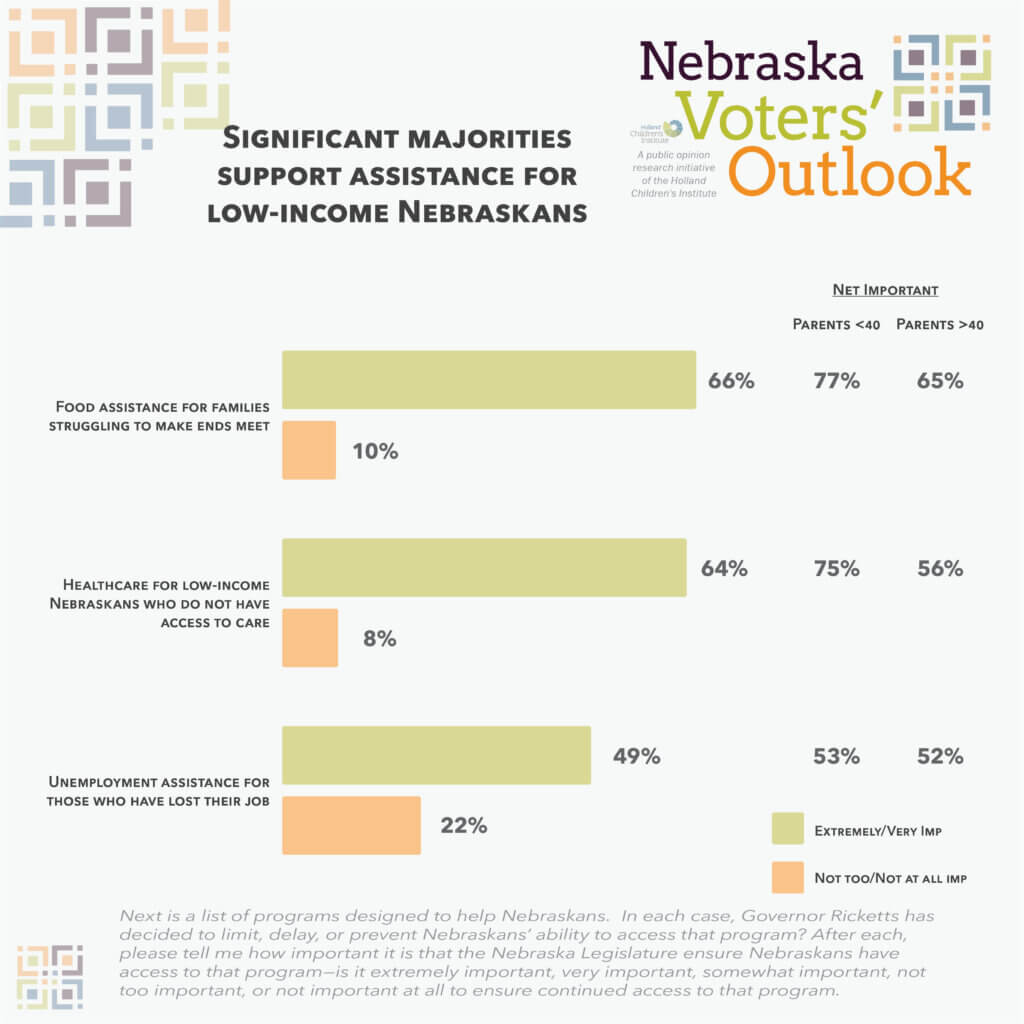
When asked about workers’ rights, significant majorities again favored policies benefitting workers and their families. In response to “raising service workers” tipped wage to the state’s current standard $9.00 minimum wage, 64% favored the substantial increase, while just 32% opposed it. Asked about a “paid family and medical leave program” for every Nebraska worker, paid for by a tax on the wealthiest 4% of Nebraskans, 60% favored the policy approach, while 36% opposed it. “Despite the Legislature’s refusal to codify many of these policies in law, support hasn’t dimmed. State elected leaders must realize with public high favorability of ignored policy, and declining job approval ratings, eventually public opinion makes its way into election races,” Richters concludes. ”If they aren’t paying attention now, they will be soon.”
Methodology
This analysis is based on a survey conducted by Patinkin Research Strategies on behalf of the Holland Children’s Institute. The survey was conducted July 26-30, 2021 among n=592 registered Nebraskan voters. Approximately n=250 interviews were completed via live calls to landlines and cell phones using professional interviewers (n=248 weighted), n=250 interviews were completed using Dynata’s online panel (n=269 weighted), and an additional n=92 interviews were completed via a text to web platform (n=69 weighted). Telephone interviews were conducted via both landlines and cell phones. Cell phone interviews represent 65% of live calls. The overall credibility interval (the theoretical margin of error for a poll that relies partially on non-probability based online sampling is plus or minus 4.0 percentage points. The margin of error for subgroups varies and is higher.
The survey sample was randomly selected from TargetSmart’s enhanced voter file and quotas and weights were set based on education, age, gender, party registration, party identification, vaccination status, county, and race to reflect a statistically representative universe of registered voters in Nebraska. Weights and quotas specific to education (based on census data), party registration, party identification (avg. of the three past surveys), and vaccine status were set specifically to reduce the impact of differential non-response bias and ensure an accurate representation of more conservative Republican and independent voters based on numerous post-election 2020 analysis conducted by both Republican and Democratic polling firms. The multi-modal platform selected for this research project (the current gold standard in research design) was also implemented to minimize the impact of differential non-response bias.
